View the PDF version of this report
Introduction
The mentoring programme has been developed and guided by a Steering Group whose membership is representative of Academy Members. The refreshed programme builds on the previous NIHR Academy Mentoring Programme that was delivered by the Academy of Medical Sciences, expanding the programme to support all Academy Members, regardless of professional background. The refreshed programme was launched in February 2021. Each year, NIHR provides the opportunity for 75 matched mentoring pairs, prioritising those from backgrounds or disciplines that may not have previously had access to mentoring. In the first year of the mentoring programme, we launched three cohorts. This report focuses on Cohort 3 (2021).
The programme aims to support the academic and career development of NIHR postdoctoral communities by:
- Extending the NIHR mentoring programme to postdoctoral award holders from disciplines and professional backgrounds which may not have a strong mentoring tradition or may not have had access to programmes such as this in the past.
- Promoting interdisciplinarity working; mentees are able to seek a mentor from a cognate or complementary discipline or professional background, where appropriate.
- Supporting mentoring relationships between individuals from different organisations and institutions.
- Promoting equality, inclusion, and diversity through engagement with, and learning from, under-represented groups.
How we define mentoring:
We define mentoring as a non-directive developmental relationship; mentors support mentees to learn and grow. The relationship is often two-way: the mentor also develops. Mentors often draw on shared knowledge, skills, competencies and behaviours; they call on the skills of questioning, listening, clarifying and reframing. Mentors tend to have the organisational and contextual experience relevant to the mentee’s organisational and career-related system, and typically mentoring relationships tend to be longer-term than coaching.
We base our definition on the European Mentoring and Coaching Council (EMCC) approach to mentoring. EMCC Global recognises that the practice of mentoring is dynamic and evolving in a rapidly changing global context. In 2021, the EMCC Mentoring Group, was tasked by the Global Executive Board (GEB) to review the existing definition and make recommendations for an updated understanding. The Review Group adopted a triangulation approach, which included a literature search, focus groups and survey of members. The findings reflect and incorporate the perspectives of the wider mentoring community, including views from inside and outside the EMCC’s global community.
EMCC Global definition of mentoring:
“Mentoring is a learning relationship, involving the sharing of skills, know ledge, and expertise between a mentor and mentee through developmental conversations, experience sharing, and role modelling. The relationship may cover a wide variety of contexts and isan inclusive two-way partnership for mutual learning that values differences.”
Programme methodology:
We adopted the EMCC Global International Standards for Mentoring and Coaching Programmes (ISMCP) as an overarching framework for the design, implementation and evaluation of the mentoring programme. The ISMCP is an independent accreditation awarded to organisations designing, delivering and evaluating mentoring and/or coaching programmes either ‘in-house’ or externally. It is an integral and essential step on the path to establishing the professional credibility and status of good mentoring programme management, ensuring programmes are:
- Thoughtfully designed
- Systematically managed
- Significantly contributing to the development of participants, strategic drivers of the organisation and wider stakeholder objectives
The purpose of the ISMCP is to provide a consistent and globally accepted benchmark of good practice in mentoring and coaching programme management. The application of the programme framework enables NIHR to:
- Legitimise our mentoring programme against a recognised standard
- Strengthen and improve the mentoring programme through rigorous ongoing review
- Continue to build the evidence for developmental outcomes through mentoring, positively influencing key stakeholders
- Identify opportunities to promote mentoring development activity internally and externally
Programme timeline
Cohort 3
|
Expression of interest |
Orientation |
Match confirmed |
CPD |
Interim survey open and close | ||||
|---|---|---|---|---|---|---|---|---|
| 9 June 2021 | September 2021 | September 2021 - October 2021 | October 2021 – December 2022 | February 2022 – March 2022 | ||||
|
Interim evaluation report |
Summative survey open and close |
Summative matched pair interviews |
Final report | |||||
|---|---|---|---|---|---|---|---|---|
| March 2022 | 2 November 2022- 16 December 2022 | 11 November 2022 - 17 January 2023 | March 2023 | |||||
Recruitment process and matching
The mentoring programme uses expressions of interest for both mentees and mentors to apply to the programme, the dates and this information cascades to prospective applicants via the NIHR Infrastructure. All potential mentees and mentors are invited to submit an expression of interest within the application window. This application can be for the upcoming cohort or a later cohort depending on their preferences.
- Mentees are NIHR Academy Members who hold an NIHR postdoctoral award and/ or hold a postdoctoral position and are based in NIHR Infrastructure or in an NIHR School
- Mentors are NIHR Academy Members or Associate Members who are NIHR research leaders
The matching process is broken down into three stages, at stage one we review the matching criteria points that were selected in the expression of interest form. The matching criteria consists of eleven points that all applicants are asked to indicate which are most important to them:
- Balancing professional and academic work
- Career progression
- Career transition
- Research funding
- Developing a global/international research profile
- Networking/building relationships
- Work/life balance
- Diversity and inclusion
- Leadership development
- Research practice
- Managing research teams
We then move onto reviewing the free type responses for any additional preferences and supporting information, for example if a mentee would like to be matched with a mentor in a specific field or with specific experiences. Finally, we conduct a review at stage three of mentee and mentor preferences to ensure they match up and do not have any conflicts of interest before the match is confirmed.
Training and continuing professional development
Attendance at orientation training is compulsory for all mentees and mentors. It is delivered via an online interactive webinar, facilitated by the Programme Manager and external Mentoring Consultant. The orientation covers the following key topics:
- The programme team and their roles
- An overview of the aim and objectives of the programme
- The role of the mentor and mentee
- Ethics, confidentiality and key documentation
- Professional development offer
- Programme evaluation approach, phases and methods
Following the mentoring programme orientation, mentees and mentors are invited to attend a broad range of continuing professional development (CPD) optional interaction workshops. The purpose of the CPD workshops is to provide ongoing support at key transition points in the mentoring relationship, focusing on knowledge, skills and behaviours. The overall objective of the CPD workshops is to enable participants to develop effective and successful mentoring relationships.
The programme team developed additional workshops, based on interim feedback from mentees and mentors to support specific topic areas such as work-life balance, resilience and transitioning from mentee to mentor. Mentees and mentors are able to attend ‘drop-in’ sessions to meet the programme team on a monthly basis to address any aspect of their mentoring practice.
In line with EMCC Global ISMCP requirements, mentors are also provided with ongoing reflective practice support with peer mentoring workshops, facilitated by a suitability qualified and experienced external mentoring consultant. Mentees are also able to attend a dedicated reflective practice forum with their peers to discuss any aspect of their mentoring programme experience and/or broader professional development related topics.
Programme evaluation
The mentoring programme has a robust evaluation framework in place which supports the continuous improvement of the programme, the collation of evidence of achievement against the programme’s aim and objectives. Regular updates are shared with key stakeholders and identification of lessons learned informs the ongoing development of the mentoring programme, potential future programmes and wider audiences. The evaluation consists of two phases, the phase one interim evaluation.
Phase one
This took place five to six months following the launch of the programme and comprised a light touch temperature check survey for all participants, providing a feedback opportunity and to address any challenges which may arise. Cohort 3 interim evaluation opened 24th February and closed 12th March 2022. Cohort 3 interim evaluation has a mentor response rate
of 41% (n=9) and mentee response rate of 46% (n=12): overall response rate of 37.5%.
Phase two
At the end of the programme, participants are invited to complete an in-depth survey, focusing on their mentoring relationship experience and outcomes. For cohort 3 the response rate was 36% (n=10) for mentees and 36% (n=10) for mentors: overall response rate 36%. Seven matched pairs attend semi-structured interviews, providing the opportunity to create in-depth case study exemplars.
Cohort 3 interviews were conducted between 11th Nov 2022 and 17th January 2023 by an External Mentoring Consultant. The approved transcriber produced 124 pages of transcription across 7 matched pair interviews, ranging between 6 pages and 15 pages per interview. We followed the same process subsequent to the interviews as outlined for cohorts 1 and 2.
In addition to the two phases outlined, we collect feedback at various touch points, including check-ins with participants at regular intervals and informal feedback via the continuing professional development sessions.
Key outcomes
We share a number of key outcomes from cohort 3, comprising data collected throughout the programme. The statistics cited in this section are drawn primarily from the summative surveys.
We received a significant number of expressions of interest from mentees and mentors:
- 52 Mentee expressions of interest
- 20 Mentor expressions of interest
Satisfaction with mentee – mentor match
- 100% of mentors and 80% of mentees were either very satisfied or satisfied with their mentoring match
Interdisciplinary mentoring relationships
- 50% of mentors and 60% of mentees described their mentoring relationship as interdisciplinary
Continuing in the mentoring relationship beyond the programme
- 60% of mentors and 70% of mentees will be continuing in their mentoring relationship
Continuing to engage in the mentoring programme
- 80% of mentors intend to support another mentee in a future programme cohort
Transitioning from mentee to mentor
- 70% of mentees intend to apply to be a mentor in a future programme cohort
Number of CPD sessions facilitated and participant attendance
- 74 CPD webinar topic sessions were delivered between June 2021 and July 2022
Most popular CPD sessions for mentees and mentors
- The most useful CPD workshop topic sessions were beginning the mentoring relationship, developing an effective mentoring relationship, phases of the mentoring relationship and work-life balance.
Overall view of the CPD and initial programme orientation
- The summative survey confirmed 100% of mentors and 80% of mentees felt the CPD sessions were very helpful, helpful and somewhat helpful during their mentoring relationship
Number able to build trust with their mentee or mentor
- 100% of mentors and 90% of mentees felt they were easily able to build trust with their
Number achieving mentoring relationship objectives:
- 100% of mentors and 100% of mentees felt that they met all or most of their mentoring relationship objectives
Satisfaction with the mentoring programme
- The summative survey shows that 100% of mentors and 90% of mentees felt that the programme met all or most of their expectations
Areas of impact
In this section we identify key areas of impact, including the mentoring relationship focus, key themes discussed in the mentoring relationship and the perceived value of the mentoring relationships and programmes. To illustrate the areas of impact further, in the next section we present five matched pair mentor and mentee case studies. They provide further in-depth exploration of the mentoring relationships.
Mentoring relationship focus
Through the programme evaluation mentees and mentors described the overall focus of their mentoring relationship was career planning and progression, building capacity for fellowship applications, research funding and outputs, networking and building relationships, navigating the academic environment including politics and self-presentation, managing work-life balance and leadership development.
Key themes discussed in the mentoring relationship as described by mentees andmentors included:
- Career development and transition
- Work-life balance
- Research and funding
- Leadership and management
Perceived value of the mentoring and programme
Our mentoring programme has had a significant impact on the mentees, both personally and professionally.
Personal
- At a personal level, the mentoring increased their self-confidence, awareness of self-care and managing work-life balance practices
Professional
- As early career professionals, the mentoring conversation with experienced senior practitioners have helped mentees to explore career options and seek guidance on the next stage of their career. Some mentees expressed that they felt hugely supported in their career transition and learnt ways of networking, applying for research grants, managing the work environment, building collaborative relationships and leadership capacity
Mentees described how the mentoring has supported them in both the career and psychosocial space:
- ‘It was quite good to learn and share experience, how to move forward and how sometimes one had to sacrifice or give up something important ... a clinical role, just to make sure that the research side is progressing well. That was important.’ (Mentee)
- ‘Trying to balance the clinical side of things and also the work life side of things.’’ (Mentee)
A significant benefit was the independence of the mentor to the mentee; the independent and objective guidance and the unbiased ‘listening ear’ was highly beneficial:
‘Having the opportunity to discuss my career with an experienced academic has been very valuable. I appreciated the time given and the support received so far. Having a mentor outside my institution has been very beneficial as it created a safe space for me to open up about various concerns.’ (Mentee)
‘Someone neutral from a different organisation would be really helpful to give a balanced view on things ... and non-biased and objective advice.’ (Mentee)
'Speak to someone new and then articulate my ideas out aloud ... (Mentor) helped me to progress or rethink so it was a safe space to talk through things.’ (Mentee)
‘What is he going to do differently, ... how is he getting it
altogether.... if he doesn’t get Plan A, what’s Plan B, what’s Plan C, what’s Plan D ...?’ (Mentor)
Our mentoring programme has enabled mentors to build their emotional intelligence and develop their own self-insight around the holistic practice of mentoring, supporting their mentees’ personal and professional development, including confidence building, leadership positioning and self-presentation, successfully navigating a postdoctoral career. The formalisation of the mentoring relationships and the accompanying training and continuous professional development webinars were viewed as effective learning and reflective spaces by several mentors. As most of the mentor-mentee matches are across interdisciplinary health research areas, mentors also widened their knowledge and gained further insights into new areas of work.
For mentors and mentees, the benefits have been broad, encompassing a sense of personal satisfaction, development of key mentoring skills and connectivity:
One mentee described the most valuable aspect of the mentoring relationship was the networking opportunity; he emphasised that:
‘especially finding a collaborator in my area of interest where I am able to research at an international scale ... it’s hard to find it and it’s hard to develop that sort of collaboration especially for very early researchers, people who have just started doing research.’ Thinking about his future career, he added, ‘I think I will be able to help and support the next generation or the future researchers, for instance, having my own PhD students working under my supervision.’
Another mentee shared:
‘My mentoring experience has been fantastic. My mentor has helped me to recognise my worth and has gently encouraged me to stretch outside of mycomfort zone.’
‘My mentor connected me with other Clinical Academics in my clinical community. She also shared her experience of other colleagues who have crafted a career similar to the one I am aiming for.’
The survey and matched pair interview evaluation data highlights that the mentoring programme and the mentoring relationships are having a significant impact on both the mentee and mentor learning and growth and addressing key topics.
Mentor and mentee case studies
Pair 1:
Mentor – Prof Ann Forster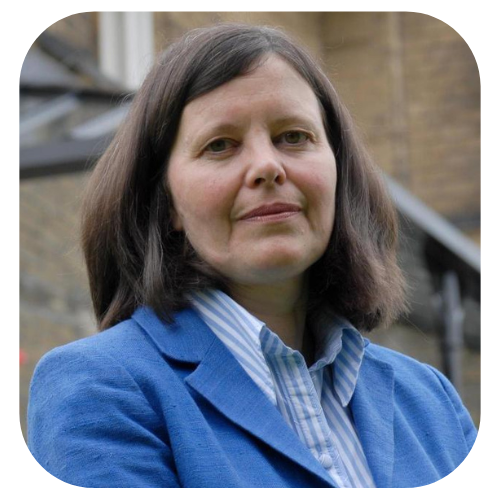
Ann is a Professor of Stroke Rehabilitation at the University of Leeds, based at Bradford Teaching Hospitals NHS Foundation Trust. She is the Head of the Academic Unit of Elderly Care and Stroke Research, Leeds Institute of Health Sciences. In 2017 she was awarded as an NIHR Senior Investigator, a recognition as an outstanding leader of patient and people-based research within the NIHR Faculty. Anne is also NIHR Academic Training and an ambassador for a career in health research, promoting the NIHR training and career opportunities. She is a physiotherapist with a long-standing interest in stroke and has undertaken a number of randomised trials and qualitative studies examining the effect of interventions to improve the longer-term outcome for patients and carers. Ann is the chief investigator for two multi-centre trials in stroke rehabilitation, currently the largest in the UK. She has gained significant experience of building research teams in the NHS.
Mentee – Dr Penny Rapaport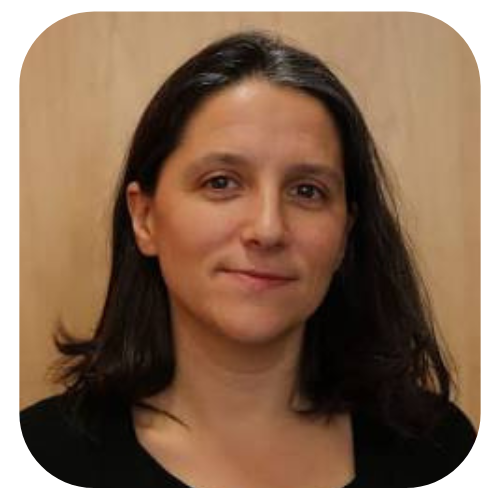
Penny is a Principal Research Fellow and clinical psychologist at University College London. She has worked clinically for a number of years with people with dementia in the community, hospital and care home settings; her current work is in applied health research. She has an existing NIHR Fellowship to support her research on interventions for homelessness and memory problems; she is also a Chief Investigator on a trial of non-drug intervention for dementia.
Drivers for joining the mentoring programme
Ann is an established Academic Health Professional (AHP), she has insight into the challenges of developing an academic career and is committed to helping other AHPs develop their academic careers. As a Senior NIHR Investigator, Ann is committed to offering her support and participating in the NIHR Mentoring Programme. Penny joined the NIHR Mentoring Programme as she has received an NIHR Fellowship and wanted the opportunity to ‘have an external mentor ... someone from another university that is completely separate and in a more senior position’ as her mentor.
Relationship focus
The mentoring relationship has spanned over a year, and Ann and Penny had 5 to 6 mentoring conversations during this time on zoom. As a non-medical clinician and early career researcher, new to leading projects independently, Penny was keen to ‘develop as a research leader and find ways to balance delivering on targets whilst creating a supportive environment for my team and working in a way which aligns with my values as a clinical psychologist’. She needed a thinking space to consider and take stock of her research work, explore her current role and consider next steps in her career progression. She was keen to build a mentoring relationship with an established senior academic with similar experience and background.
Ann pointed out that her mentoring approach was mentee-led, and she offered a framework for Penny to raise and explore relevant topics related to her career. Both confirmed that they were a good match in several aspects. Penny highlighted that her mentor was able to help her reflect and think about her work and career choices. They also shared similar backgrounds and gender which enabled good rapport and added to the discussions on similar challenges such as work-life balance and perceptions of a successful female academic leader.
The main topic of the mentoring conversation centred on day-to day challenges of managing people and teams, developing others and timely research deliverables. Future career options and choices and timelines were also considered, including necessary next steps.
Relationship satisfaction
It was evident from the research interviews that the relationship was mutually beneficial. It was evident that a very positive mentoring relationship had developed, Penny reflected that her mentor ‘was just really lovely, warm, engaging and interested, open and put me at ease.’ She particularly appreciated the formally allocated mentor time as well as the fluid nature of the mentoring conversation rather than being too goal-oriented as this is what she most needed at this point in her career – space to reflect on her current position. She also pointed out that Ann was extremely supportive throughout and fully understood her working landscape, encouraging her to consider her future potentials and career opportunities.
From a mentor perspective, Ann felt that she was able to offer insights from her own experiences which enabled Penny to relate to her own context appropriately.
Mentoring outcomes
Penny confirmed that she has benefited personally and professionally from the mentoring relationship. At a personal level, Penny felt that ‘it was incredibly powerful to have this time and be listened to by someone who is where you would see yourself in ten years or five.’ She observed that she felt validated and understood at a personal level and that was a very positive experience. Professionally, she acknowledged that the mentoring conversations challenged her to reflect deeply on her role and areas of concern; consequently, she was able to raise and address this appropriately in her annual appraisal. Ann reaffirmed that some mentoring conversations enabled Penny to take the required actions which addressed the issues raised.
Overall reflections
Overall, the mentoring relationship offered both challenge and a nurturing space enabling mutual learning, a space for validation, sharing of experiences and well as addressing both current career outcomes and future career options.
Pair 2:
Mentor - Prof Gerry McCann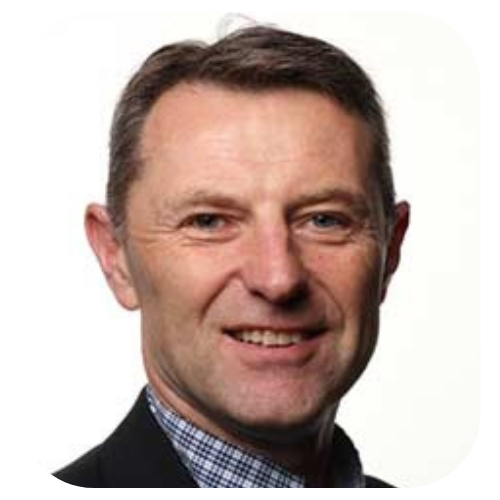
Gerry is an imaging cardiologist and NIHR Research Professor, having transitioned from a full-time NHS consultant through successive NIHR Fellowships. He is the Cardiovascular theme lead for NIHR Leicester Biomedical Research Centre, the immediate past-chair of the British Society of Cardiovascular MRI research group, lead of the PhOSP-COVID cardiovascular working group and East Midlands Cardiovascular Clinical Research network. His research is focused on clinical imaging and conducting randomised controlled trials. His work has been quoted in multiple international guidelines and he has published over 190 peer- reviewed articles, 120 of which have been in the last 5 years, and he is senior or first author on over half of these publications.
Mentee – Dr Daniel Fudulu
Daniel is an Academic Clinical Lecturer in Cardiothoracic Surgery and ST6 Cardiac Surgery Trainee at University of Bristol. He is a NIHR Academic Clinical Fellow with a strong interest in research.
Drivers for joining the programme
Daniel joined the NIHR Mentoring Programme for support to consider his career options, possible transition and progression. Gerry has a strong track record in developing early career researchers with an emphasis on career-life balance. He is a trained mentor using the Egan skilled helper model to challenge and help mentees to make positive decisions which can be actioned. He has experience both as an internal and external mentor. His motivation for joining the NIHR mentoring programme as a mentor was ‘very much about giving back and helping others.’
Relationship focus
Gerry and Daniel started the mentoring relationship just over a year ago and they have been meeting once every three to four months. They both confirmed that they have agreed to continue beyond the one-year NIHR Mentoring programme as Daniel is still in the process of deciding on his next career role. The focus of the mentoring outcomes was on Daniel’s career options and finally a decision on his next career role. The emphasis was on considering the various routes and exploring them together, i.e.,
continue in academia, return to a clinical role or consider a combined role and the implications of these choices.
Relationship satisfaction
The interview highlighted that Gerry and Daniel built a positive mentoring relationship, and they were both confirmed that they were a good match. As this was his first mentoring experience, Daniel did not know what to expect at the start of the relationship. However, he was keen to be matched to a mentor who was significantly experienced and was at the peak of his career. Gerry observed that Daniel wanted to talk about his next career stage, and he was able to help his mentee to explore the
options as he had significant experience and knowledge in the field of cardiology. Daniel too acknowledged that his mentor was ideal to support him as he was a Professor in Cardiology, and he was well connected to the cardiac surgical field as a senior academic.
Mentoring outcomes
The interviews highlighted that the relationship was mutually beneficial. Daniel confirmed that his mentoring expectations were fully met. He reflected as follows, ‘to be honest I didn’t know exactly what mentorship really meant ... he [mentor] has done a great job because I just realised what a mentor really means. Like, not directing you but actually putting you in the position to ask yourself relevant questions of where you are heading.’ Both confirmed that Gerry mainly steered the mentoring conversations to enable Daniel to explore his career options, taking into account wider perspectives and implications such as impact and views of his family. The monitoring conversations helped Daniel to ‘explore what he wanted to achieve and how he was going to go about it.’
Overall reflections
Gerry observed that he was able to support Daniel to review his decision-making process regarding his career choices, considering the uncertainties of the situation and the potential for creating anxiety for his mentee. He supported Daniel with the challenges presented by ‘helping him to decide what is good for him and his family ... the key objective was not just about his career, it was about him holistically’. A key mentoring outcome was Daniel’s increased self-awareness and ability to explore his career options to achieve what he wanted.
Daniel confirmed that he had gained both personally and professionally from the mentoring relationship. He has recognised that he had to find the option that is right for him in his current circumstances. Although he is yet to finalise the next steps in his career progression, he now has more clarity to critically analyse his career options. He concluded that mentoring conversations were ‘very honest, open, informal discussions at the human level’ which were contextualised to his personal circumstances.
Pair 3:
Mentor – Prof Alistair Hay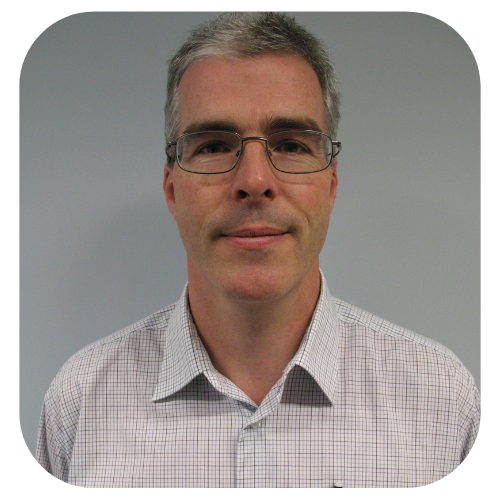
Alistair is a GP and Professor of Primary Care at the University of Bristol. As a senior academic GP, he is passionate about improving the diagnosis and management of infections in primary care. He leads a highly successful inter-disciplinary research team engaged in impactful applied health research leading to high quality publications, collaborating both internally with the School of Social and Community Medicine and across the University of Bristol as well as with like-minded researchers at the Universities of Oxford, Southampton and Cardiff.
Mentee – Dr Kristin Veighey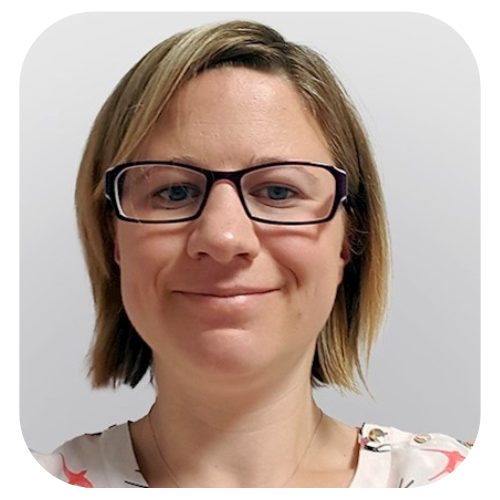
Kristin completed her PhD in Clinical Pharmacology and Nephrology at University College London, following 5 years as a Consultant in Renal Medicine. Currently, she is a NIHR Academic Clinical Fellow in General Practice, a Honorary Senior Clinical Lecturer and an Associate Director at Southampton Academy of Research based in University Hospital Southampton. She is also the Academic Career Development Lead for Medical Clinical Research Fellows.
Drivers for joining the programme
Kristin joined the NIHR Mentoring Programme as she needed to get a ‘sense-check’ of her work and career context. She observe that, ‘I’ve made quite a lot of big changes, I changed speciality and had gone into an NIHR Fellowship, into a new department, I wanted to have someone that would guide that was outside of my own immediate environment.’ She was seeking mentor support to transit from a previous consultant role to being a trainee again and working out the implications of this change.
Alistair is keen to support colleagues wishing to develop a research career alongside their professional practice. As a NIHR Senior Investigator, Alistair is committed to supporting the next generation of academics and prioritises this as a key responsibility which he expects to be mutually beneficial and a rewarding experience. As a mentor, he was keen to build trust, offer confidentiality and work to the priorities set by his mentee.
Relationship focus
Alistair and Kristin started the mentoring relationship in August 2021, and this is continuing at present. During this period the
pair met approximately 6 to 7 times and there is a commitment to continue the relationship further based on mutual agreement.
Alistair and Kristin both acknowledged that at the initial stage the mentoring sessions were organic, and topics were mainly led by the mentee. Their mentoring conversations included exploration of contrasting roles, managing relationships in the workplace, debriefing on difficult situations, work-life balance and time management. As the relationship progressed the focus of the conversations shifted to future research topics and prioritisation as well as strategic overview of next steps in her
career trajectory.
Relationship satisfaction
Both Alistair and Kristin agreed that they were well matched. Alistair noted that Kristin was ‘able to talk to me’ so there was mutual trust. Kirstin had visualised her mentor as a female academic, not necessarily a GP, who had navigated challenges of work, life, children and how to juggle all this and still have a career. However, although the match initially took her by surprise, she quickly recognised the value of working with a GP academic who had navigated his own career challenges and was able to share insights which she highly appreciated. She observed that ‘I guess it feels like what I had in mind and what I needed were different and I ended up with what I needed rather than what I came in thinking I needed.’
Mentoring outcomes
It was evident from the research interviews that the mentoring relationship offered Kristin a safe space to seek validation of h r experience and learn from her mentor’s insights and perspectives. She pointed out that at the start of the relationship there was a ‘lot of discussion on how to reset yourself in a new environment.’ She was able to explore and understand the potential opportunities and orient herself with her new working environment. As she transited into her new role, she started to consider future career goals, both short and long term. Here, her mentor was able to offer significant guidance to think through her options and realistic timelines. Kristin also acknowledged the pastoral support throughout the mentoring relationship, particularly as she explored her personal challenges and its impact. Opportunities for networking, building connections in the academic field as well as a joint collaboration were some of the other mentoring outcomes.
Overall reflections
Kristin empathically confirmed that her mentor was able to support her on the challenges she has raised. She felt encouraged and listened to and this has enabled her to make a successful transition to her new role. She commented that ‘I think having a mentoring relationship where you are able to be vulnerable about the things that have gone wrong, I think, as a mentee, that is really powerful.’ When asked what was most valuable about the relationship, Kristin pointed out that for her it was her personal validation and support to navigate through changes, leading to acceptance and empowerment. Alistair also valued that they had established trust in the relationship and his contributions to helping her to settle in her new clinical position. Reflecting on the mentoring conversations so far, he observed that ‘we have invested some time into this, and it would feel like a missed opportunity not to carry on a bit longer ... I will happily offer this if she would like.’ This committed beyond the one-year period of the NIHR Mentoring Programme is a strong indicator of the successful mentoring relationship.
Pair 4:
Mentor – Prof Tony Avery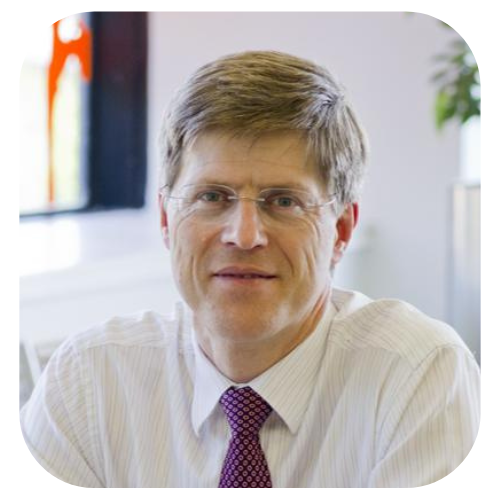
Tony is Professor of Primary Health Care at University of Nottingham and an NIHR Senior Investigator. He is the National Clinical Director for Prescribing and has led a major expansion of the Division of Primary Care securing membership of the NIHR School for Primary Care Research in 2009. He was appointed as the Director of Research for the School of Medicine in 2013 and was Dean and Head of School from 2015 to 2019. He also works as a GP at the Valley Surgery, Chilwell, Nottingham and leads on patient safety and prescribing for the practice. He achieved an ‘Outstanding’ rating from the Care Quality Commission in 2015. He is an experienced, enthusiastic and effective teacher with excellent feedback on his teaching at undergraduate and postgraduate levels. His research focuses on patient safety in primary care, and he has led major studies to identify the frequency, nature and causes of prescribing errors and avoidable patient harm in primary care.
Mentee – Dr Brian McMillan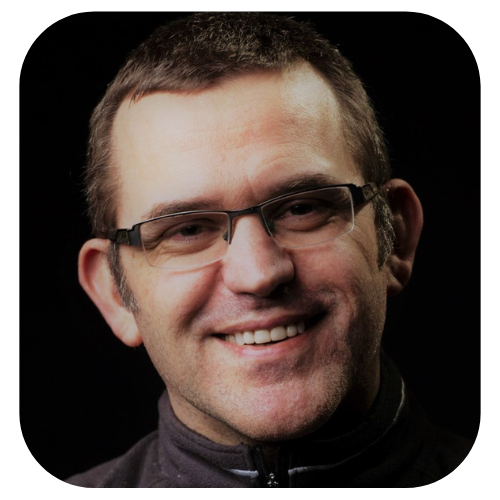
Brian is a NIHR Clinical Lecturer in Primary Care at the University of Manchester. He also works as a GP at Wincobank Health Centre in Sheffield. Prior to this he was a NIHR Academic Clinical Fellow and completed his academic GP training in August 2016, having qualified with a MBChB from the University of Leeds in 2010. He is a Health Care Professions Council registered Health Psychologist and has worked on a number of health-related research posts after completing his PhD at the University of Leeds in 1998. His current research interests include the development of health behaviour change interventions for the primary care setting, including how technology can be harnessed for health behaviour change.
Drivers for joining the programme
Brian joined the mentoring programme to be connected to a mentor with whom he could discuss his clinical academic pathway, his current research work and his future career progression. As he put it, he was ‘really looking for somebody to talk to that had similar experiences as a clinician ... someone who was a GP that had been through the same pathway that I am going through at the minute.’ He was keen to have a mentor with experience, in a senior role so he would learn from his mentor. Tony is an accredited Academy of Executive Coaching (AoEC) executive coach. He has extensive experience of supporting mentees through career transition and progression as well as developing leadership skills. As an NIHR Senior Investigator he has developed others through mentoring and coaching. Tony recognises the benefit of mentoring and is committed to supporting the career development of others.
Relationship focus
Tony and Brian’s mentoring relationship has spanned over a year and during this period they met approximately 5 times on Microsoft Teams. Although the formal NIHR mentoring period has ended, they have agreed to keep the relationship open and continue to be in touch. The focus of the mentoring was to help Brian to prioritise the different aspects of his clinical academic career, including work-life balance. The mentoring topics
included self and time management, balancing clinical practice and academic work as well career progression.
Relationship satisfaction
Tony and Brain both agreed that they were very well matched. Brain acknowledged that his mentor ‘was an academic GP who is very well known in his field.... he advises policy makers and is involved in writing guidelines ... he is a professor ... he is certainly very well established in his field, and he has been through a similar journey.’ This was a perfect match for him as he was able to relate to his mentor personally and professionally.
Tony also confirmed that his knowledge and experience of academic primary care help him to relate fully to his mentee’s work context, enabling mentoring conversation to be focused and relevant to his mentee’s needs.
Mentoring outcomes
It was evident from the research interviews that the mentoring relationship was well developed and productive. Brain had felt isolated working on his research project during the pandemic. He was able to discuss this openly with his mentor and received validation which significantly increased his morale and confidence. He reflected that it ‘was just nice to be able to tell somebody who knew exactly what that felt like ... he had been in a similar position himself.’
Tony had a non-directive approach, offering Brian the space to lead the conversation. He was able to fully relate to Brian’s context being a fellow GP as well as share his own experience and knowledge in the specific field. Brian acknowledged that his mentor ‘was quite good at drawing things out of me and drilling down into an issue without necessarily giving me any clear signs about what he wanted to talk about ... he drew the answers out of me and got me talking about things and got me thinking and maybe looking at things from a different perspective.’ Tony also affirmed that he helped to steer the conversation through deep listening and allowing time for reflection, offering his own perspective and feedback as required.
Brian concluded that he benefited both personally and professional from this relationship: firstly, he received lot of validation about the progress of his research work, successful publications and engagement with policy makers which confirmed that he was on the right path to achieve his career goals; second, this reassurance built his confidence significantly and he is now motivated and energised, has appointed a research assistant to take his research to the next level.
Overall reflections
Overall, both affirmed the mentoring relationship was highly beneficial and created a positive environment. From Tony’s perspective, the personal connection established with Brian enabled very open and honest conversations, which confirmed that they had built a trusting relationship. For Brian the mentoring relationship has enabled him to find balance and focus on his work, recognise his own achievements as well as future potential. He concluded that ‘I now know what I need to do for the next step.’
Pair 5:
Mentor – Prof Suzanne Richards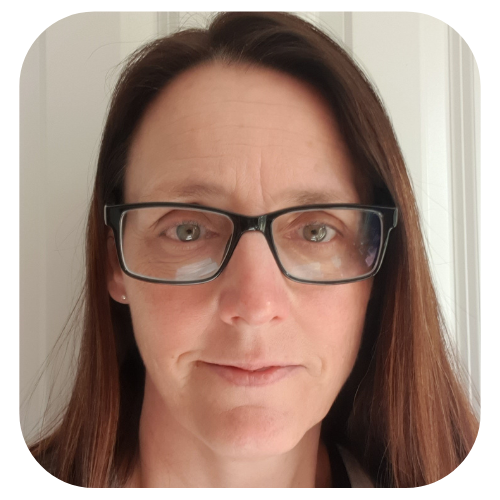
Suzanne is a Professor of Primary Care Research at University of Leeds and a member of British Psychological Society and the Division of Health Psychology. She is a senior social scientist with extensive experience of designing and evaluating complex interventions for older people in applied health settings and one of only a handful of non-medical Professors in Primary Care Research in the UK. She is also a national lead for Primary Care Scientists for the Society of Academic Primary Care (SAPC), with a remit to champion career development, mentoring & support, and promote equal opportunities for non-medical professions working in academic primary care. Over 25 years, in building a career in collaborative and multidisciplinary teams she has navigated the difficulties faced by non-clinical researchers seeking to build a career within the Medical School environment.
Mentee – Prof Yemisi Takwoingi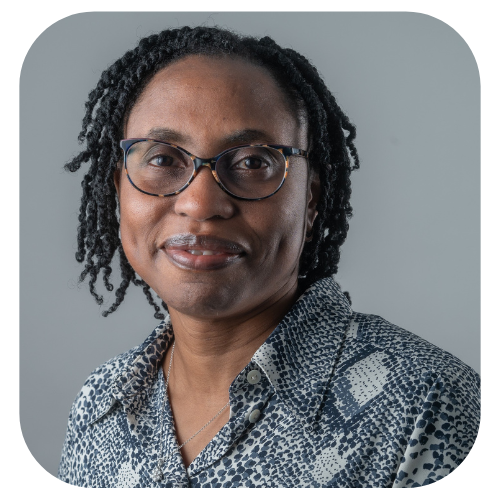
Yemisi is a Professor of Test Evaluation and Evidence Synthesis at the University of Birmingham and Deputy Director at the Institute of Applied Health Research. She collaborates on methodological and applied health research projects. Her research interest is primarily in diagnostic test evaluation and systematic review methodology, especially meta-analyses of diagnostic test accuracy studies. Yemisi has several scientific and advisory roles, one of which is as a co-convenor of the Cochrane Screening and Diagnostic Test Methods Group. She also has editorial roles within Cochrane and for other journals.
Drivers for joining the programme
Yesimi wanted a mentor who was ‘outside my usual circle who can challenge me out of your comfort zone, give a different perspective, and provide support and expertise as I take on the new leadership challenge of being a Deputy Director.’ She also wanted to gain experience of formal mentoring so she could be an effective mentor in the future. Suzanne joined the NIHR Mentoring Programme as she was committed to supporting professionals from non-clinical backgrounds as ‘there are very real challenges and tensions around managing and balancing the different aspects of such professional careers.’ Following Suzanne’s own positive experience of being mentored, she is committed to give something back to the next generation.
Relationship focus
The mentoring relationship has spanned over 12 months and Suzanne and Yemisi had 4 mentoring conversations during this time. The focus of Yemisi’s mentoring support was on leadership development. Having transited to the role of a professor and then more recently taking on a leadership role as the Deputy Director of her Institute, she was keen to be mentored by someone with experience of leading a large multidisciplinary team, who independent from her line management and University set up, with no vested interested in her decisions and choices. The interviews highlighted that Suzanne adopted a person-centred approach to the mentoring relationship, offering a space for open and honest conversations, acting as a sounding board for Yemisi to explore specific situations within her work context and her current leadership challenges.
The main topic of the mentoring conversation centred on leadership style and approach including managing relationships, managing performance, dealing with conflicts, managing end of contracts, supporting staff transition, showing compassion and understanding of others’ contexts and leading and motivating a team. Suzanne was able to share own experience in this area and offer a space to consider more than one perspective. Related areas of discussion involved building a strategic outlook as well as building confidence as an academic leader.
Relationship satisfaction
Yesimi and Suzanne confirmed that they were well matched in several aspects. Yemisi pointed out that Suzanne was able to offer a different perspective as her mentor was from a non-quantitative discipline, outside of her own specialism in biostatistics and at the same time had significant experience in an academic leadership role. Suzanne confirmed that with her experience as a research lead for 150 people, the mentoring conversations on managing change and people as well as leadership strategy were relevant to Yemisi’s needs.
Mentoring outcomes
It was evident from the research interviews that the relationship was mutually beneficial. Suzanne offered a framework for the mentoring
conversations, encouraging Yemisi to consider and send through topics for discussion, prior to the mentoring session. They both agreed that they jointly managed the relationship which worked well. For Yemisi the mentoring gave her a safe space to discuss how to manage various aspects of her current role with someone without any vested interest. Suzanne described the mentoring support as ‘mainly talking through the strategies that she was thinking of doing and the tactics of doing it and how she was actually going to do it. That’s the support she needed.’
Yemisi confirmed that she had gained both personally and professionally from the mentoring relationship. She recognised the benefit to having her mentor as a sounding board to be able to think through her approach and decision-making process as well as getting insights into her mentor’s experience and context. Personally, she acknowledged that she has gained in confidence, particularly as her leadership responsibilities increased during the period of mentoring. She reflected that ‘some have put a superwoman cloak on me, and I could come into the mentoring session and take that cloak off and just be myself. That was very helpful.’ Suzanne also reflected that she too had gained from this relationship; she observed that the mentoring conversations were ‘different and interesting’ and she ‘enjoyed the fact that Yemisi and I had different sorts of conversations... it felt like you were dusting off a bit of experience that you don’t get to apply to other people very often.’ She also appreciates being a mentor on the NIHR Mentoring Programme as a professional recognition which aligns well with her significant involvement in NIHR fundings and fellowships.
Overall reflections
Overall, it was evident that an open and honest mentoring relationship had developed based on mutual respect. When asked, if anything surprised her about the relationship, Yemisi said that she had not expected to enjoy the mentoring process and the relationship as much
as she did; she observed ‘I was quite surprised that it turned out to be such a nice and rewarding experience.’ She particularly valued the openness and trust in the relationship.
Suzanne too commented on her non-conflicting, independent role which enabled the honest conversations. She also appreciated the benefits of some structures and frameworks
introduced within the NIHR mentoring programme, having adopted them within her mentoring practice.
Pair 6:
Mentor – Prof Lynne Rochester
Lynne is a Professor of Human Movement Science in the Institute of Neuroscience, Newcastle University and an honorary Consultant Physiotherapist at Newcastle upon Tyne Hospitals NHS Foundation Trust. She has achieved the NIHR Senior Investigators Award (2020-2024). She has a number of leadership roles nationally and internationally. She currently leads the NIHR Clinical Research Network (CRN) Speciality Cluster, where she has a strategic oversight of the NIHR research portfolio in ageing, dementia, neurodegeneration, neurological disorders and genetics, and lead national projects that aim to optimise the research delivery network in the UK. She is also the Coordinator for the Mobilise-D consortium consisting of 34 partners from academia and industry funded through the EU IMIJ2. She serves on the Task for on Technology for the International Parkinson’s disease and Movement Disorders Society and has previously been a Director of the Clinical Ageing Research Unit which is a translational experimental clinical research facility aimed at ageing.
Mentee – Dr Katie Rogers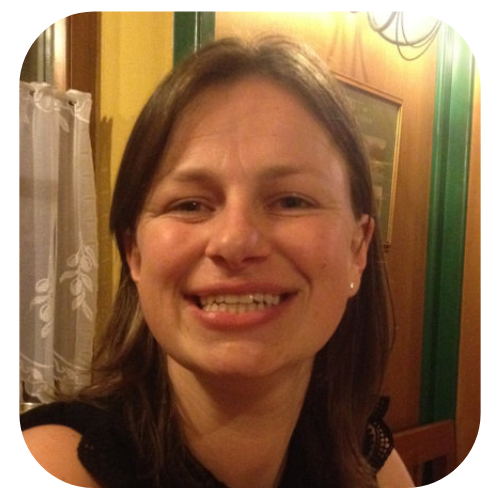
Katie is a NIHR Post-Doctoral Research Fellow at the University of Manchester. She is a member of a research group named Social Research with d/Deaf People (SORDs). She is on her second NIHR Fellowship and is currently working on a research project titled: ‘Telemedicine as a treatment for Deaf people with common mental health problems who use British Sign Language: a mixed methods feasibility study.’ Additionally, she is the co-investigator for a NDCS funded study called the READY (Recording Emerging Adulthood in Deaf Youth) study. The main focus of the research is considering outcomes which could improve the quality of life for d/Deaf people and their families.
Drivers for joining the programme
Katie joined the NIHR mentoring programme during the pandemic when she was struggling to balance her work and home life with a young
family. She was seeking an opportunity to speak to somebody impartial, who would not judge her and was independent of her institution. She concluded that it ‘would probably be a good idea to speak to somebody externally that had a different perspective.’ Also, as she was mentoring a pre-doctoral student at that time, she wanted a mentoring experience herself to enhance her own skills. Lynn has experience of mentoring individuals from diverse disciplines and backgrounds, supporting them in developing their careers, networking and thinking about leadership skills and opportunities. She has supervised many PhDs and mentored many clinical academics who have gone onto successful careers, and she has a formal role in her institution in mentoring the next generation of female scientists. Lynne felt that as she was a senior NIHR investigator, it was part of her role to contribute to the NIHR Mentoring Programme. She is highly committed to mentoring the next generation of clinical academics.
Relationship focus
Lynne and Katie’s mentoring relationship has spanned over one year, and they had three mentoring conversations during this time. Another mentoring session was scheduled in January 2023 to conclude the relationship at the time of the interview. Katie described herself as a ‘deaf academic in a hearing institution’; realistically she was not expecting a perfect match but was keen to experience as much as she could. The main topics of mentoring conversations were balancing work and home life, managing expectations in a part-time academic role, career development opportunities and addressing systemic challenges in a not deaf-friendly environment and exploring opportunities for contributions to EDI activities within NIHR.
Relationship satisfaction
Katie observed that the mentor-mentee match with Lynne worked well on several aspects. Firstly, they were both female and working mothers and Katie wanted her mentor to help her with time management, work/life balance and understand the pressure of being a part time academic. Secondly, Katie wanted to build her academic leadership skills and Lynne in her senior role was able to share insights and perspectives which were beneficial to Katie. Katie concluded that ‘I was happy with the choice given to me, she was approachable, and I felt like we got on well.’ Lynne also felt that she was able to support Katie to consider ways of navigating a busy workplace with an equally busy family life. Lynne also observed that working with Katie through a sign language interpreter worked really well, which was a very positive experience for her. The interviews also highlighted that the mentoring conversations were mainly mentee-led although Lynne led it in the early stage to set and manage expectations.
Mentoring outcomes
The interviews highlighted that mentoring conversations were relevant and led to several outcomes. The mentoring conversations established that Katie’s contributions ought to be proportionate to her part-time role; Katie observed that being ‘able to express it and talk about it’ was beneficial and her mentor as able to offer suggestions to address it internally as well as get involved externally in relevant groups and meetings to be able to make a contribute to the Equality Diversity and Inclusion (EDI) agendas.
Katie has been able to raise the issue of her part-time role and work expectations in her annual review and this has now been raised at the university level. Katie reflected that her mentor gave her ‘food for thought about contacting NIHR and asking to speak to somebody in the EDI how I can contribute. So, she gave me some tips as to where to go, how to navigate and what to do.’ Katie benefitted both personally and professionally from the mentoring relationship. She reflected that ‘just by having a conversation with somebody externally ... one academic to another, talking about some of the challenges that work brings as a working mother in an academic environment’ was helpful. She also learnt about INVOLVE, a working group in NIHR she could engage with and also opportunities for coaching as a developmental intervention.
Overall reflections
Overall, both Lynne and Katie had a very positive mentoring experience. Katie concluded that the relationship exceeded her expectations ‘I feel like I got something out of it which I didn’t expect ... I did not feel I was moaning or making demands ... so it was nice to talk to somebody that wasn’t a part of the university’. Lynne observed that Katie now had the ‘tools to go away and work with and come back and discuss how things had changed or indeed if they hadn’t simply because she hadn’t had the time, but she remembered’. Overall, the mentoring conversations helped Katie to be more structured, plan and prepare in advance and critically reflect on her future career choices.
Pair 7:
Mentor – Prof Caroline Alexander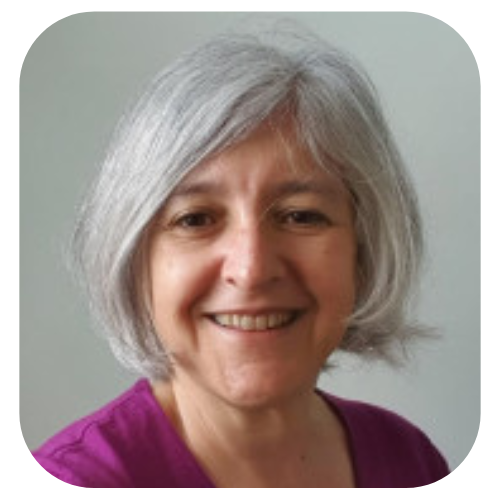
Caroline Alexander is the Lead Clinical Academic for Allied Health Professionals at Imperial College Healthcare NHS Trust and Professor of Practice (Musculoskeletal Physiotherapy). She is also a member of the Human Performance group in the Department of Surgery and Cancer at Imperial College NHS Trust. She has held a position as a clinical specialist and researcher within the Physiotherapy Department of Imperial College Healthcare NHS Trust since 2003 and a Senior Clinical Lectureship role between 2012 and 2017. She is a member of the Musculoskeletal Association of Chartered Physiotherapists, the Health and Care Professions Council, the Chartered Society of Physiotherapy, the Physiological Society and the Society for Neuroscience, and is a founding member of the London hub of the Council for Allied Health Professional Research. She has been a Physiotherapy Advocate for the National Institute of Health Research.
Mentee – Dr Sharin Baldwin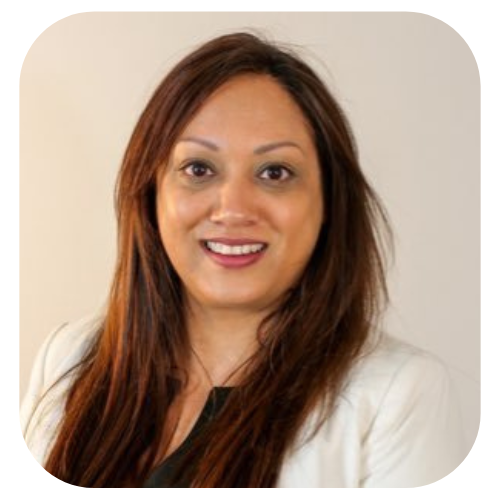
Sharin currently works as Clinical Academic Lead at London North West University Healthcare Trust. She is a trained nurse, midwife and health visitor. She completed her PhD at King’s College London as part of a NIHR Clinical Doctoral Fellowship and remains the only health visitor in the UK to be awarded this fellowship. She has experience working in a range of leadership, professional development and clinical academic roles throughout her career. She is a Queen’s Nurse, Fellow of the Institute of Health Visiting (FiHV), iHV Perinatal Mental Health Champion and Health Visitor Research Champion. She undertook the New Dad Study (NEST) that focussed on first-time fathers’ mental health and wellbeing during their transition to fatherhood. Following her PhD, she completed a year in Warwick Clinical Trials Unit after receiving the NIHR Development and Skills Enhancement Award.
Drivers for joining the programme
Sharin joined the NIHR mentoring programme for her overall career progression. She was looking for a successful clinical academic as a mentor who could guide her in a positive way to establish herself in a similar role. She was keen to be paired with someone who could relate to her own challenges and at the same time had the knowledge and experience of the research landscape within the NHS to guide her as appropriate. Caroline was keen to mentor clinicians sitting within the NHS to support their development and progression. She valued ‘the opportunity to mentor a wider group of professionals ... to use the mentorship skills developed through extensive training and experience.’ Caroline has significant experience in mentoring clinicians, pre doctoral fellows, PhD students and post-doctoral fellows beyond NIHR Clinical Lectureship levels. Her role within the NHS is to support career transition and progression from clinician to clinical academic and she has supported the development of under-represented groups in research since 2003.
Relationship focus
Caroline and Sharin started the mentoring relationship in November 2021 and due to conclude in March 2023. During this period, the pair met approximately 5 times and there were a few email exchanges involving review and feedback on a Fellowship application. Sharin highlighted that her mentor discussed expectations and agreed a structure for the sessions, inviting her to think about topics for discussion at the start of the sessions. Overall, the conversation was mainly mentee-led; Sharin explained that ‘I would come with what I wanted to talk about and then Caroline normally would probe and ask questions and then we would get into a discussion. So, I would say it was quite equal in that sense but often I do come in with things that I want to discuss.’
Their mentoring conversations included fellowship applications, training needs analysis and identifying areas for development, exploring suitable job roles, strategic thinking and decision making, building networks, creating professional boundaries and work-life balance. Overall, the focus of the mentoring conversations was to support Sharin to explore her career trajectory and consider the best options for her next career role.
Relationship satisfaction
Both Caroline and Sharin agreed that they were very well matched. Sharin commented ‘it couldn’t have been better because she was able to provide the sorts of things I was looking for and she understood some of the challenges I am facing right now ... she enabled me to think about things from a different perspective and provide some guidance on how to navigate through some of the challenges.’ Caroline also observed ‘because of her quandaries about where she sits within organisations and how she develops her career as a clinical academic .... as I sit in the NHS, my view on organisations and how she might fit within organisations and who should host her was specifically helpful.’
Mentoring outcomes
The mentoring relationship was highly effectiveand offered Sharin a safe and reflective space to explore the next steps in her career openly and honestly. She acknowledged that Caroline helped her to think strategically to make informed choices, she observed ‘I wanted to do so many different things and she actually got me to slow down and stop and think ... often, she will say things and I would then go and reflect on it and then do things differently. I think that’s been the most important part of these sessions.’ Caroline explained how Sharin reconsidered her career choices and was able to make ‘the decisions of where to sit that could give her the best opportunity to progress her career ... so rather than saying, yes to everything ... she developed the skills to become more strategic.’ Sharin confirmed that she had gained both personally and professionally from the mentoring relationship.
She reflected, ‘I feel a lot clearer about what I want to do in the future and how I might get there.’ She has identified gaps in her CV, such as becoming a PhD supervisor and examinerand has been supported by Caroline to seek this role. She has also built her confidence to say ‘no’ as appropriate to keep her focus on her areas of interests.
Overall reflections
Sharin empathically confirmed that her mentor was able to support her fully on the challenges she had raised. She felt supported and guided in her decision-making and this built her confidence in making appropriate career choices. When asked what was most valuable about the relationship, Sharin pointed out that for her ‘having someone who is interested ... is really important, she was genuinely interested in what is happening with me and supporting me.’ It was evident that this was an effective mentoring relationship, a ‘really good connection.’ Sharin was also surprised by this perfect match and the usefulness of the mentoring conversations.
Caroline reflected on supporting her mentee to explore her environmental context with a pragmatic approach, helping Sharin to build strategic connections and make informed choices. She also confirmed that Sharin, in her new role ‘is now sitting in a very much better space, with much better collaborative networks, with a really interesting and impactful job that is going to create widespread change for her profession.’ She gives full credit to her mentee for this positive outcome, saying ‘she created her own opportunities.’ Sharin however acknowledges that the mentoring built her confidence and gave her the tools to make better career choices.
Summary
At the beginning of the report, we set out four programme objectives. We are delighted to share that we have:
- Extended the NIHR mentoring programme to postdoctoral award holders from disciplines and professional backgrounds which may not have a strong mentoring tradition or may not have had access to programmes such as this in the past
- Promoted interdisciplinarity working; mentees are able to seek a mentor from a cognate or complementary discipline or professional background, where appropriate
- Supported mentoring relationships between individuals from different organisations and
institutions - Promoted equality, inclusion, and diversity through engagement with, and learning from, under-represented groups
Similar to the first and second cohorts of the mentoring programme, the third cohort has been a huge success, fostering a nurturing and supportive environment at a crucial and challenging time in many colleagues’ lives. Unprecedented challenges and constraints influenced every aspect of the mentoring programme and the mentoring relationships. Our cohort programme evaluation demonstrates that mentees and mentors spent time cultivating knowledge and skills in career planning and progression, building capacity for fellowship applications, research funding and outputs, networking and building relationships, navigating the academic environment including politics and self-presentation, managing work-life balance and leadership development.
Research shows us that the most enriching mentoring relationships are those where there is reciprocity and mutual learning. Our programme illustrates the power of mentoring to cultivate mutually beneficial mentoring relationships where the positive impact reverberates beyond the mentoring relationships and programme.
So many mentoring programmes are reliant on goodwill and volunteerism, our programme is supported by the voluntary contribution of mentors and many active Steering Group members who willingly give their time in service of others – thank you.

